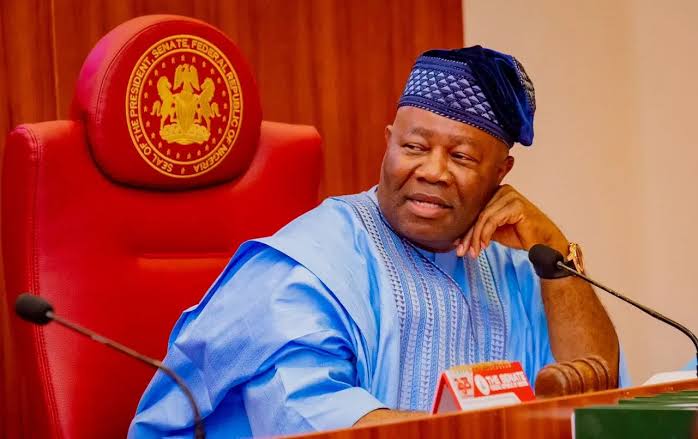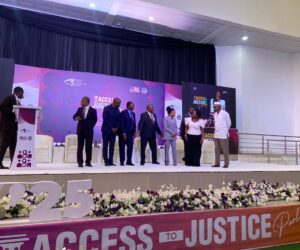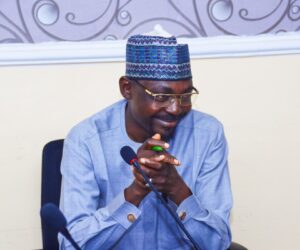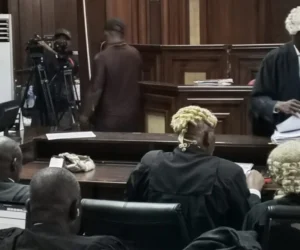By Ibironke Ariyo
The Senate President Godswill Akpabio and Deputy Speaker Benjamin Kalu have backed the reserved seat bill, describing it as crucial to boosting women’s participation in political leadership.
This is even as the leadership of the National Assembly assured that due considerations would be given to the Reserved Seats Bill currently pending before them.
Speaking at the opening of the 2025 Law Week of the International Federation of Women Lawyers (FIDA) Nigeria, Abuja Branch, Akpabio observed that the theme of the law week was timely.
He said that it reflected the association’s commitment to gender equality, inclusiveness and meaningful representation of women in legislative decisions in Nigeria.
The News Agency of Nigeria (NAN) reports that the theme of the event is “Advancing Women’s Representation: Reserved Seats and the Future of Nigeria’s Legislature.”
Akpabio, who was represented by Senator Idiat Oluranti, pointed out that a woman’s strength was not supplementary but from the foundation.
He recalled how his mother brought him up with dignity, discipline, resilience, faith and sacred truth.
“The potential of women is not a matter of quality. It is knowledge, moral duty.
“So when I fight for gender equality, when I speak for women, when I push for female representation, I’m doing it as a policy,” he said.
In his keynote address, the Deputy Speaker of the House of Representatives, Benjamin Kalu, stated that Nigeria as a nation could no longer ignore the state of representation which was skewed against the female gender.
Kalu said “Nigeria is home to over 220million people, nearly half of them are women which is 49.43 per cent by the National Bureau of Statistics (NBS) estimates.
“Yet women hold fewer than five per cent of seats in our National Assembly. This ranks us 178th out of 182 countries globally.
“This is a structural imbalance with real consequences for governance, development, and national cohesion.
“When women are absent from the legislature, perspectives disappear, conversations narrow, and our laws lose the balance that democracy requires. No nation can rise with half its talent standing outside the room,” he said.
Kalu observed that Nigerian women were capable and could do very well when they had the opportunity.
He, however, lamented that the challenge had always been the absence of an equal chance to compete within Nigeria’s political architecture.
He observed that despite their talent, intellect, and resilience, Nigerian women still face systemic barriers to political participation.
“Party structures, campaign financing, sociocultural norms, and gatekeeping have long limited their access to elected office.
“This is why I sponsored the Reserved Seats Bill (HB 1349), a temporary constitutional remedy to a structural injustice that decades of advocacy alone have not fixed.
“PLAC estimates that implementing this framework will cost less than 1 per cent of the National Assembly’s annual budget, a small investment for a major democratic correction.
“And globally, McKinsey shows that closing gender gaps could unlock $28 trillion by 2030. For Nigeria, that translates into billions in productivity, innovation, and national growth,” he said.
Speaking further, Kalu disclosed that the 10th House of Representatives, under the leadership of Tajudeen Abbas, had placed inclusion at the centre of its legislative mission.
This, he said, expanded participation, strengthening equity, and building institutions that reflect the aspirations of all Nigerians.
“As Chair of the Constitution Review Committee, I have ensured that our work is anchored in transparency, rooted in rigorous public consultation, and shaped by the voices of women and men from every corner of Nigeria.
“We are hosting national dialogues, convening public hearings, and engaging communities across the country to ensure that the constitution is truly of the people, by the people, and for the people.
“I call upon you, the women of FIDA, the legal community, and all stakeholders, to actively engage with the committee. Bring your expertise, your experience, and your insights.
“We are closer to equitable representation now than ever before. This is the moment when commitment must outweigh comfort, and conviction must triumph over caution,” he added. (NAN)(www.nannews.ng)
Edited by Yakubu Uba








